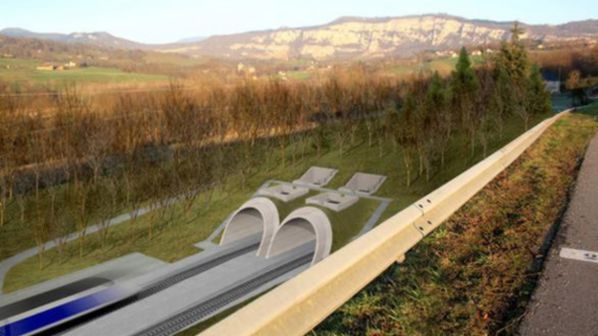According to a letter from European Mediterranean Coordinator Mr Jan Brinkhorst, which was obtained by French newspaper Les Echos, the EU has already provided €370m between 2007 and 2013, with €14m allocated for 2014-2020. “Suspension of the project would call into question the current grant agreement and could lead to its termination and full or partial repayment of sums already paid,” the letter states.
The project has been allocated €813.8m through the EU’s Connecting Europe Facility (CEF), which funds investment in transport, energy and digital infrastructure.
The two countries signed an agreement to build the tunnel in 2015 and in 2017 this was ratified by the French and Italian governments in legislation authorising construction. However, the formation of a coalition government following Italy’s 2017 general election has made the status of the project less clear, with the League supporting construction of the new line and the Five Star Movement (M5S) opposing it.
In December 2017, M5S MEPs wrote to EC transport commissioner Mrs Violeta Bulc urging her to withdraw CEF funding, claiming the project “does not match the general objectives foreseen by Article 3 of the CEF Regulation, namely it is clearly not a project with European added-value.”
On the French side too, enthusiasm for the project has dimmed. In May, 63 politicians from all levels of government in the Auvergne-Rhône-Alpes region wrote to French president Mr Emmanuel Macron seeking reassurances that the line will be completed before 2030. “Without a modern and efficient French gateway, it will not be possible to achieve a substantial modal shift of transalpine goods transport from road to rail,” the letter warned.
On September 11, the French government announced it would invest €13.4bn in the transport network in 2018-2022, a 40% increase compared with 2013-2017, with the emphasis on modernising existing infrastructure and relieving congestion around key nodes. However, funding is being made available for new lines and the government says it will maintain its “European commitment” to Lyon - Turin, although this is dependent on a continued commitment to the project on the Italian side.
The 140km line will have 87km of tunnels including a 57km twin-bore base tunnel between St Jean de Maurienne, France, and Chiomonte in Italy. The cross-border section extends for 18.1km on the Italian side, 12.5km of which will be in the base tunnel. Beyond the Italian portal, there will be a 3km link to the existing line at Bussoleno, including a 2.1km tunnel and a new station at Susa.
Implementation of the project is being managed by Euralpine Tunnel Lyon - Turin (TELT), a 50:50 joint venture between Italian State Railways (FS) and the French state.

